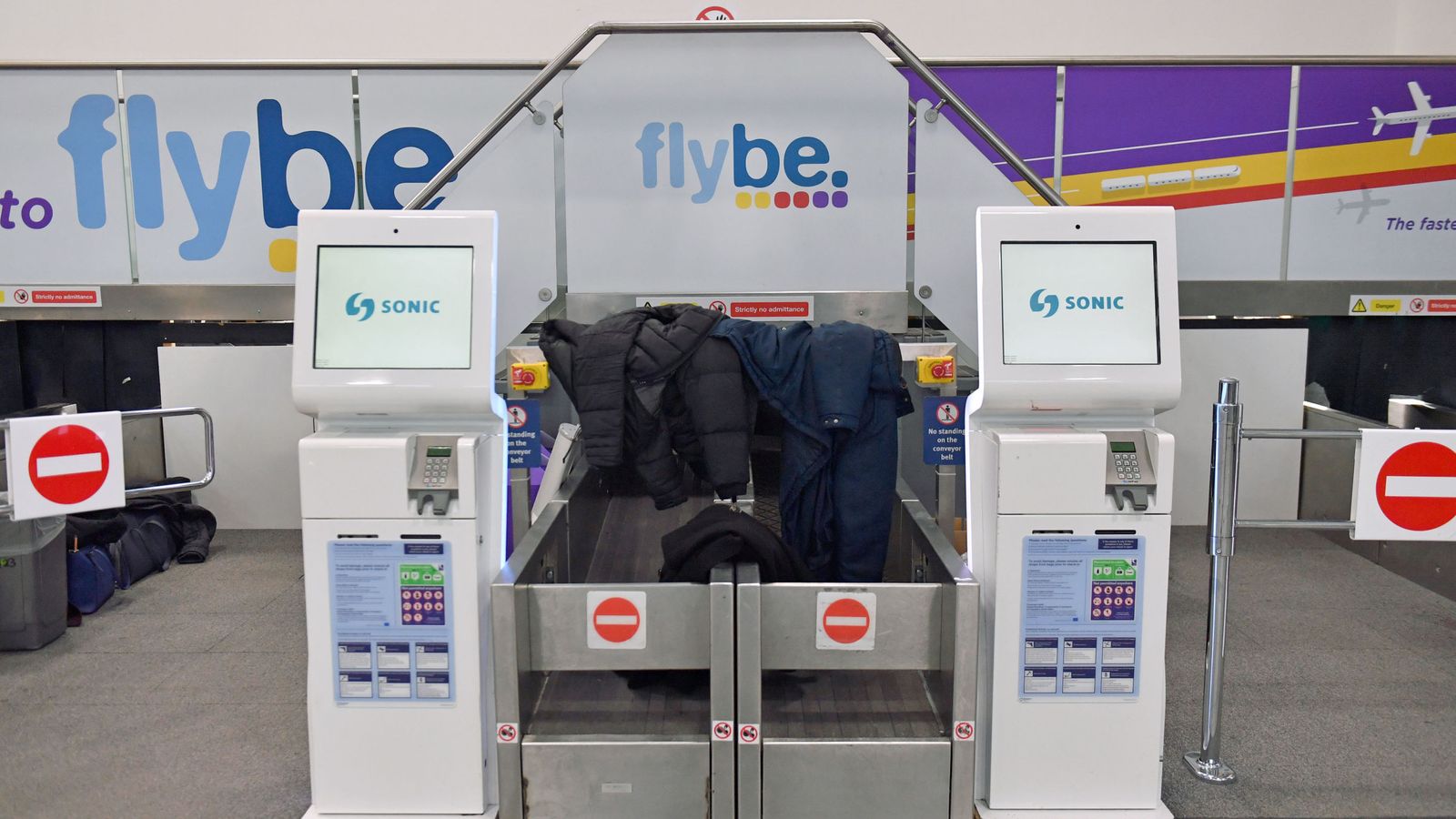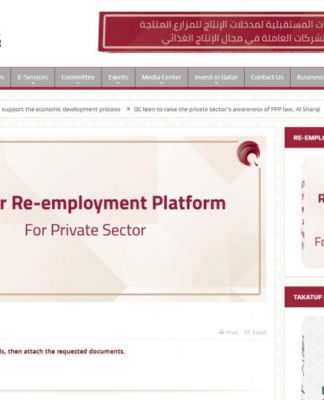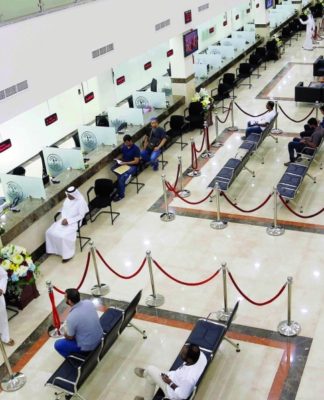Analysis
Flybe collapse asks questions about the resilience of UK’s transport infrastructure
With the rail industry in turmoil and the train network a national embarrassment, a regional airline should have been able to offer a realistic alternative.
Paul Kelso
Business correspondent @pkelso
Saturday 28 January 2023 22:34, UK
Jackets and coats left at theFlybe check-in desks at Birmingham International Airport as Flybe, Europe's biggest regional airline, has collapsed into administration. PA Photo. Picture date: Thursday March 5, 2020. See PA story AIR FlyBe. Photo credit should read: Jacob King/PA Wire
Image:
Flybe check-in desks at Birmingham International Airport after it collapsed into administration in 2020
Why you can trust Sky News
Flybe is a smaller, less significant business than when it collapsed for the first time in March 2020, but a second failure in three years raises questions not just for prospective owners, but the connectivity of the UK.
Three years ago the failure of what was then Europe’s largest regional airline was blamed on the advancing pandemic, but in truth the company had been in trouble for years.
Sponsored link
Recommended byWhat is Outbrain
Pulse Alert
A government-brokered deal two months earlier with shareholders, including Virgin and the US hedge fund Cyrus Capital, kept planes in the air, but ultimately they couldn’t defy economic gravity.
Read more:
Flybe collapses and cancels all flights, with hundreds of jobs lost
What are passengers’ rights when flights are cancelled by a bankrupt airline?
Cyrus Capital bought the brand out of administration and, in April last year, resumed operations trying to do what Flybe 1.0 had failed to do; turn a profit from an airline dedicated to serving the UK’s nations and regions.
Its strategy was to use the regional services as a bridgehead into international travel, filling spaces on flights to and from Belfast, Birmingham and London not filled by domestic travellers with passengers bound for the US and Europe.
A route to Amsterdam and slots at Heathrow were central to the plan, offering access to major hub airports from which Flybe hoped alliances with larger airlines would follow.
With the airline industry still recovering from COVID and stiff competition from more established low-cost operators, that plan has not paid off.
Flybe had been due to take delivery of 17 new aircraft this year, but delays to the new fleet limited the potential for partnership despite Cyrus putting in an estimated £50m to keep the enterprise airborne.
That cash has now run out, leaving administrators seeking a buyer willing to give the brand a third chance, and the UK facing a recurring question about the resilience of its transport infrastructure.
The airline has gone into administration less than a year after returning to the skies following a previous collapse.0:29
Play Video – Flybe administration: ‘It shows importance of well-invested infrastructure’
The airline has gone into administration less than a year after returning to the skies following a previous collapse
It is a question of particular salience in Northern Ireland, where Flybe was a major operator out of Belfast City airport.
In 2020 Flybe’s future was a political issue, with ministers willing to discuss cutting passenger duty in order to make good on Boris Johnson’s election promise to level up the UK’s regions.
Three years on the political imperative, along with Mr Johnson, has largely moved on, but the economic imperatives remain. Transport infrastructure is a prerequisite of growth, particularly if you are trying to share it around, and the cutting of regional ties comes at a cost.
With the rail industry in turmoil and the train network a national embarrassment you might think there has never been a better time to offer an alternative.
Flybe’s second grounding suggests otherwise.


























![Qatar Labor Law In 2020??? [UPDATES]](https://welcomeqatar.com/wp-content/uploads/2020/12/Qatar-Labor-Law-1-696x366-1-324x366.jpg)



